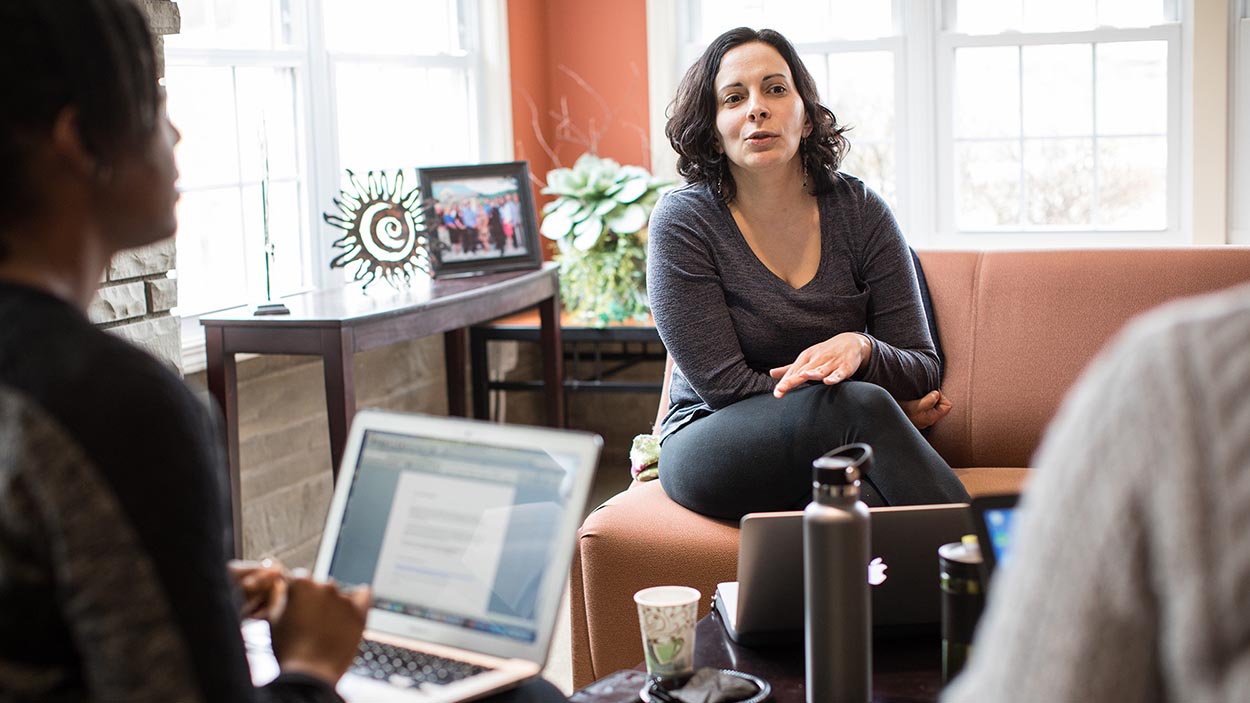Dr. Azadeh Block designs cultural humility training program for Jefferson Hospital.

Dr. Azadeh Block, associate professor of social work at Cal U, recently provided cultural humility training to employees at Jefferson Hospital, part of the Allegheny Health Network.
The training is part of the hospital’s Front Door Initiative for Social Emergency Medicine, which received a four-year grant from the Jefferson Regional Foundation.
Block presented face-to-face training to employees in the hospital’s Emergency Department, and work is underway to develop online training modules that will be available to all employees at Jefferson and, potentially, at other Allegheny Health Network locations.
Cultural humility training is meant to foster an understanding about how personal life experiences shape the way people view others.
“We know that social risk factors may not be the primary reason someone visits our Emergency Department, but social risk factors — where you work, live, and play — are underlying reasons why someone might be a recurring visitor,” said Gretchen North, program manager of the Front Door Initiative.
“Once we get a holistic health picture, we can connect and refer patients to community-based resources and supports.”
Understanding the unique circumstances and needs of the significant population of refugees and immigrants from Bhutan and Nepal who live in the South Hills of Pittsburgh, an area served by Jefferson Hospital, is critical.
“We focused on the life of people who are refugees and their experiences,” Block said of the training. “It builds empathy to understand what it’s like to be forced to leave your country, only to eventually make it to the United States and not be welcomed.
“And then, being a refugee can impact things like access to nutritious foods for a period of time. Knowing that can inform some of the issues that people might see in the Emergency Department.”
North said 60 members of Jefferson’s Emergency Department took the training.
“Azi definitely tailored the training not only to the population she was teaching but also to the populations we see most frequently,” she said. “We want to target our most vulnerable patients, and among them are refugees and immigrants who have access and literacy issues. They’re not the only population, but they are a major one."
A pre- and post-training assessment indicated the presentation was a success.
"I was born in New Castle, Pa., and grew up in Pittsburgh; Southwestern PA is my home, but because I have a parent who is an immigrant, I can personally relate to both experiences: born here and immigrant," Block said. "This coupled with my professional training as a social work educator is the recipe for success in making it a training that is relatable.
“I’m happy to be helping people with this. I think it’s really necessary.”
